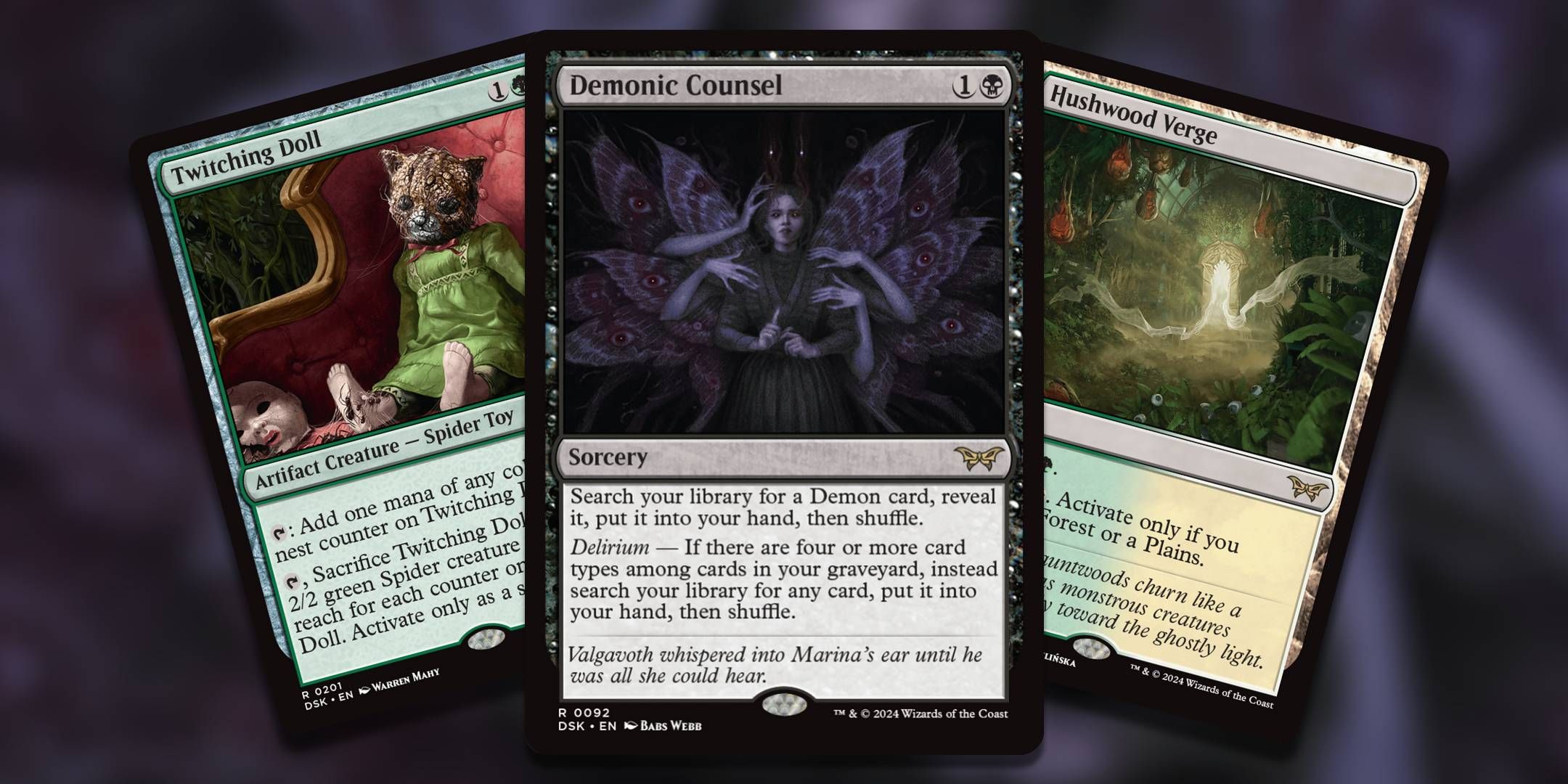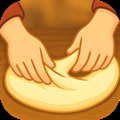Strictly Better Cards From MTG Duskmourn: House Of Horror

Generally, every set that Magic: The Gathering drops includes a couple of cards that are just better versions than older cards. Sometimes, they’ll cost less mana, while other times, they might just do more of an effect. The Horror-inspired Duskmourn: House of Horror has quite a few cards that are just straight-up better than older cards. If you’re looking for inspiration on what cards you might want to upgrade in your Commander, Legacy, or Modern decks, look no further.
RelatedMagic: The Gathering - The 10 Best Commanders In Duskmourn: House Of Horror
Duskmourn: House of Horror's best legendary creatures will be bringing nightmares to all your Magic: The Gathering Commander games.
PostsJust a quick thought about cards being strictly better in Magic. There are, of course, cards that are better in every way, but there are cards that have the potential to be better in the right decks. The Duskmourn card Bear Trap is better than Scalding Cauldron simply because it adds the keyword flash to the same effect. Meanwhile, Walk-In Closet // Forgotten Cellar has the same total cost as Crucible of Worlds and the same effect as Yawgmoth’s Will, but just because they’re both on the same room card doesn’t mean it's better.
5 Grab The Prize
Better Than: Tormenting Voice And Thrill of Possibility
CloseStarting off with a strong draw effect in red, we have Grab the Prize. This two mana sorcery has you discard a card when you cast it as an additional cost. In exchange, you get to draw two cards.
If you discarded a nonland card, you get to have grab the Prize deal two damage to each opponent. That second clause is what makes Grab the Prize better than alternatives like Tormenting Voice and Thrill of Possibility.
While dealing two damage isn’t really a ton in the grand scheme of things, only 1/10th of a person’s life total in most formats, it can help the card pull double duty, both refilling your hand when it's low and pushing the last few points of damage through to your opponent.
4 The Verge Lands
Better Than: Check Lands And Slow Lands
CloseThe Verge Lands are a new cycle that debuted in Duskmourn: House of Horrors and gives you some versatility in your land choices that aren’t the usual dual lands. In Standard, these lands are going to be everywhere, while in formats like Commander, they’ll likely replace a few slower lands that are found in many decks.
RelatedMagic: The Gathering - Duskmourn: House Of Horror's Commander Decks, Ranked
Magic: The Gathering's Duskmourn: House of Horrors set brings with it four preconstructed Commander decks, but which one is strongest?
PostsThe Verge Lands tap for one color of mana normally and then gain another color when you have a land of either color. For example, Hushwood Verge adds one green mana normally and then can tap for a white mana if you have a Forest or a Plains.
The thing with these lands that elevates them above other similar cycles is that they don’t enter tapped, which is a key clause that both the Check Land and Slow Land cycles lack. Both of them enter tapped unless you have the associated land type, so having access to mana immediately makes the Verge Lands the better cycle.
3 Demonic Counsel
Better Than: Diabolic Tutor And Diabolic Intent
CloseDemonic Counsel isn’t the best tutor in Magic, but it is pretty darn good and better than a lot of slower options for someone looking for a budget option. For two mana, Demonic Counsel lets you search your library for a demon card and then add it to your hand, shuffling afterward.
If you have four or more card types in your graveyard, you can search for any card and add it to your hand.
Getting Delirium isn’t hard at all; it can be done with as few as two cards more often than not. This gives you a tutor spell that can be turned on as early as turn three or four fairly regularly. This makes Demonic Counsel better than cards like Diabolic Intent, which requires you to sacrifice a creature you start tutoring, or Diabolic Tutor, which costs double the amount of mana.
2 Twitching Doll
Better Than: Star Compass And Fellwar Stone
CloseDespite being a green mana rock, which limits what decks Twitching Doll can slot into, it is a very solid mana rock. Sitting at just two mana, Twitching Doll can tap to add mana of any color, then put a nest counter on it.
You can sacrifice Twitching Doll to make a 2/2 Spider token equal to the number of counters on it. There’s no reason not to tap Twitching Doll every opportunity you have; just to keep loading it up with counters so you can make more and more Spider tokens.
RelatedMagic: The Gathering - The 10 Best Cards In Duskmourn's Endless Punishment Commander Deck
A little pain can produce a lot of gain in Magic: The Gathering.
Posts 1Twitching Doll comes in ahead of other two mana rocks like Star Compas and Fellwar Stone, because it just naturally makes whatever mana you want without relying on your opponent’s lands or coming into play tapped.
1 Split Up
Better Than: Righteous Fury And Don’t Move
CloseOne of the best new board wipes Magic has seen in quite some time, Split Up is a three mana sorcery that either:
- Destroys all tapped creatures.
- Destroys all untapped creatures.
Getting options with your board wipes both gives you some versatility in what you’re blowing up and limits you slightly in what you can do. However, since it’s coming in at just three mana, it can come down early to keep the board clear, or later in the game, it can save you mana so you can cast more spells.
Split Up comes in being better than Righteous Fury, a very old board wipe that also blows up tapped creatures, and is one mana cheaper than Don’t Move, a newer board wipe that came with the Jurassic World Collection.
Your Rating
close 10 stars 9 stars 8 stars 7 stars 6 stars 5 stars 4 stars 3 stars 2 stars 1 star Rate Now 0/10Your comment has not been saved
Like Follow FollowedMagic: The Gathering
7.0/10 Franchise Magic: The Gathering Original Release Date August 5, 1993 Publisher Wizards of the Coast Player Count 2+ Age Recommendation 13+ Length per Game Variable Expand Collapse












